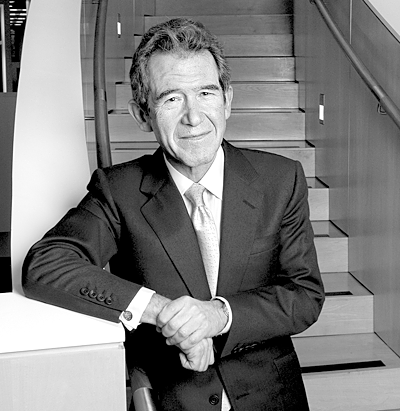Rupert Steiner talks to Britain’s most admired businessman, BP chief executive
Lord Browne, about Middle East conflict and management philosophy
Click, click, click, but no amount of clicking brings to life the silver and gold lighter in Lord Browne of Madingley’s hand. The chief executive of BP, Europe’s largest oil company, has run out of fuel and the irony is not lost on him. But colleagues rush to bring the lighter to life; one more click, and Browne is billowing smoke. ‘You’d better not write about that,’ he says, a huge grin emerging from the fog.
John Browne is Britain’s most admired businessman, and has catapulted BP from a market value of £20 billion in 1995 to a global supertanker worth £139 billion today. Last month BP topped forecasts for its first quarter results with underlying profits of $5.3 billion. It is now the second largest oil company in the world behind Exxon Mobil. As the price of crude continues to rocket, Browne explains what’s driving the market — fears that ‘a divide’ in the Middle East might affect crude supplies. He is having to make contingency plans to pre-empt supplies being shut off should the worst happen and relations between the Islamic world and the West deteriorate. A conflict with Iran could send the price of oil on an upward spiral far north of $75 a barrel.
While Browne is planning for the worst he is measured in his prognosis: ‘The new slant on oil production is a questioning of our security. Can someone use political reasons to shut off my supply? They haven’t done it in the past, but people are concerned that it could be used because of a divide in the culture of the Islamic and Western worlds. What I would say is that we have to look at all eventualities as a company, and make sure that we maintain security of supplies to our customers.






Comments
Join the debate for just £1 a month
Be part of the conversation with other Spectator readers by getting your first three months for £3.
UNLOCK ACCESS Just £1 a monthAlready a subscriber? Log in